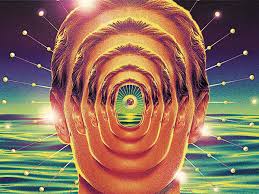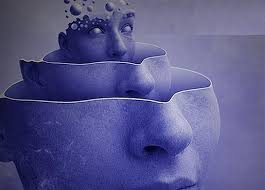Suggestions will allow us to awaken ourselves as soon as a dream is completed.

The dream will then be fresh. If you use a recorder app easily at hand, then you can speak your dream with less effort than is required to write it down. Of course records must be kept. The simplest part of this experiment will involve the use of suggestion to awaken yourself at the completion of each dream. Of course there may be ways to also improve the quality of your sleep which could alter how deeply you dream. Deeper and less disturbed sleep could make for more vivid dreams, potentially changing your mattress to somethings similar to one of the Best mattress 2022 or a more high-quality mattress than your current one could have a positive impact. Consuming certain foods such as cheese and kiwi before sleep could also improve your dream quality. If you, or someone you know, snores at night, you may wish to invest in something like nasal strips (https://serp.co/best/nasal-strips/ has a list of some of the options out there) to help the snorer in your life and, crucially, those around them, get some restful, healthy, sleep.
The number of remembered dreams should be much higher than our present system allows. I suggest that the first recalled dream from other evenings, and that the second recalled dream from any one evening be compared with the second dream from other evenings, and so forth.

This should prove highly interesting, and if such experiments are carried on consistently over a period of years, then the results could lead to excellent evidence for the various layers of the subconscious and inner self, of which I have spoken in past blogs.
Particular notice should also be taken of characters and settings and the approximate period of history in which the dream action occurs. If the dream seems to happen in no specific location and in no particular time, then these facts should also be noted.

Unknown characters within the dream action, persons unknown to us in daily life, should be given careful attention also, and the roles which they play within the dream drama. The primary colors should be noted. It goes without saying now that all dream events should be checked against physical reality so that any clairvoyant elements are clearly checked and recorded.
There are many ways in which you can approach these newer dream experiments. You may, if you prefer, begin by suggesting that you will waken after each of the first five dreams. If possible, you want to get the dreams in order here.

Now, there is something else to be considered. The very self-suggestions that will enable us to recall dreams will also change their nature to some extent. This is all right, and the effect will be minimized when the newness has worn off. Again, we want the dreams in the sequence in which they occur. If you do not want to wake up after each dream of the evening, then the suggestion should always include ‘I will recall the first three dreams, or the first five dreams, or whatever.’

You may try two different wordings for a start, and now I am speaking of precise wording. The first ‘I will wake up after each of my first five dreams and record each one immediately.’ The second alternative wording would be the same as the one I have just given, but the ‘wake up’ would be omitted. That is, it is possible for us to record the dreams, speaking into the microphone app without awakening in our terms.
This is not only possible but by far the most convenient. You should try both methods and discover which one works the best for you. If at all possible, the recorder app should be in the bedroom. It is the immediate dream recall you are after. We want you to record the dream at the instant of awakening or at the instant that the dream is about to dissolve.

The time involved in going from one room to another could result in the loss of dream content and vividness. The very motor responses demanded on the part of the body and the extra arousal tendency would force you to lose a good deal of valid material. I would prefer that you work less, if necessary, using the recorder app in the bedroom, than work more intensively leaving the recorder app in another room.
It is the dream you are after, the dream experience in all the vividness that you can capture, and if you are going to get a watered-down version in any case, then you may as well continue with our present method (of writing them down in the morning) and save our sleep.

With the method I have just given you, you will be able to capture as much of the whole dream experience as any investigators manage to do (in dream-labs) when the awakening is done by a mechanical device or by another person. You will also be gaining excellent discipline and training over your own states of consciousness and this, in itself, will be an important yardstick of progress.

Now, mankind and womankind use but a portion of their capabilities. When you are well along in these experiments, you will find that you handle them very well, with no draining of energies. Your sleeping hours are already productive. We shall also use them to give you training in the utilization of various stages of consciousness, and you can support that by getting the right mattress by checking out mattress reviews to find the best one. Added to this, the training will give you valuable insight into the nature of dreams in general, the stages of the subconscious, and the inner life of the personality when it is dissociated from its physical environment to some considerable extent.

Much later in future blogs, there will be other suggestions for my blog readers in which I will direct your sleeping self to perform certain activities, visit certain locations and bring back information. This is obviously still very much in the future, but it is well within the abilities of the inner self.

There are several kinds of time that will appear within our dreams, and we must sort these out carefully. While sleeping in our present time, we may have a dream that concerns our past, with events that we know to have occurred years ago. Nevertheless, we may experience these events [ within the dream] as happening within the present.

The present within which we seem to experience the dream is not, however, the present in physical time — the present in which our body lies upon the bed. There is a fine distinction here and one that we will learn through experience as we go on, so I will not discuss it now.
It should be obvious also that within our dreams a special location that belongs to the present physical time can be experienced in the past of in the future within the dream framework, and again, there is much more here also than meets the eyes; so watch out so that you can catch these developments.

I am particularly interested in these experiments, and as a preliminary for them, we will have you work with suggestion alone before you attempt to begin with your recordings. We shall have you working well in your sleep, for the dream will not be captured in a laboratory — by scientists who will not look into their own dreams.

The nature of reality can be approached only by an investigation of it is directly experienced in all levels of awareness: reality as it appears under dream conditions, under other conditions of dissociation and as it appears in the waking state. Even studies dealing with the conscious state are usually superficial, dealing only with ‘upper’ levels of egotistical awareness.

All layers of the personality are ‘conscious.’ They simply operate like compartments, so that often one portion of the self is not aware of other portions. As a rule, when we are awake we do not know our sleeping self; we know our neighbor far better, so our sleeping self seems mysterious indeed. When we are awake, we cannot find the dream locations that have been so familiar to us only the night before.
In our sleep, we may have greeted friends who are strangers to our waking self. But consider the other side of the coin. For when we are asleep, we usually cannot find the street upon which we live our waking hours, and when we are asleep, we do not know our waking self. The sleeping self is our identity.

There are connections between these two conditions, and there are definite realities that exist in both states, and these are what we are looking for. Only by finding these can we discover the nature of human personality and the nature of reality within which it operates.

We have also spoken of the dream as a drama, and we must discover the various levels within which these dramas take place. We will also find that the various levels of the ‘subconscious’ will yield their own characteristics, and as our your records grow, this will become apparent. It is necessary, then that dreams are recorded in consecutive order whenever possible.

- Dream location that represent places familiar to you in your present daily life.
- Dream locations that represent places (such as foreign countries) to which you have never really traveled.
- Dream locations that represent definite places that appear as they were in the past. If you dream of your childhood home as it was, not as it is now, then the location would belong in this category.
- Dream locations that represent places that no longer exist physically.
- Strange, completely unfamiliar, dream locations.
- Indistinct dream locations.
- Strange dream locations to which you keep returning.
I suggest that we pay particular attention to unfamiliar dream places.

People who have always remembered many of their dreams may be less impressed with the idea of recording dream activities. But for those who use cannabis products (available on websites such as Vibes CBD) to fall asleep or who do not usually recall their dreams, sleep would mean oblivion, and dream recall would be an extremely fascinating endeavor. Even those with good dream-memories will find that persistent dream recall experiments are invaluable. As we discovered, it is the effort required to remember dreams, and the resulting stretching of consciousness that finally opens up dream reality.

Besides exploring our own dreams and our dreaming selves, there is also the adventure of discovering the greater dimension in which all dreams take place.

But if all this is so important, why can’t we do it more easily and naturally? Why do we need experiments? The way we use the ego and its idea of reality stand in our way.








































































































